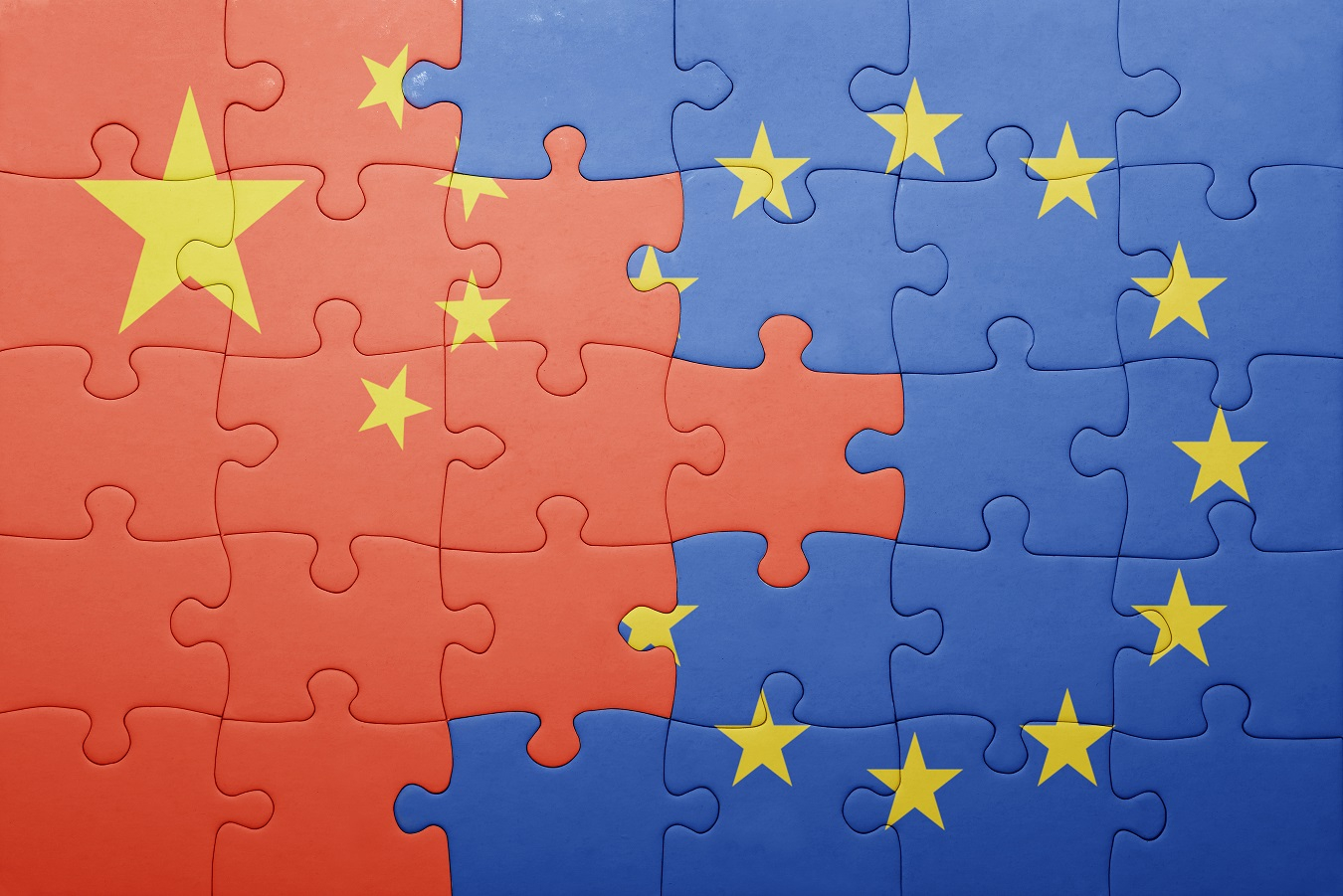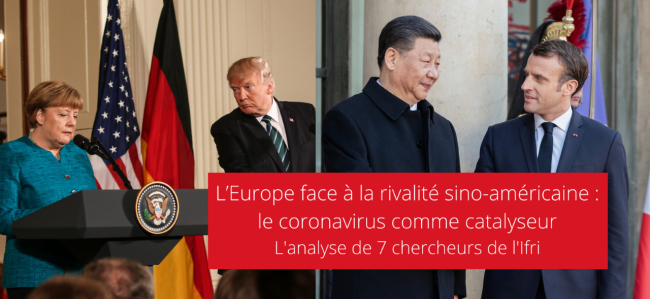
Practical information
Themes and regions
Related centers and programs

Before the Covid 19 crisis, the German presidency had set an ambitious agenda for EU-China relations, in particular with the prospect of an EU-China summit in Leipzig in September.
This summit was aimed at concluding the negotiation of a “Comprehensive Agreement on Investment”. In the eyes of Chancellor Merkel, this summit should also provide a unique opportunity for EU leaders to “speak with one voice” to China. The German government recently announced that the EU-China summit has been postponed.
What does this decision actually mean? Is it just a warning sign or the beginning of a “China reckoning” by Europeans?
Eric André Martin, Secretary General of the Study Committee on Franco-German Relations (Cerfa), Ifri
Mikko Huotari, Executive Director of the Mercator Institute for China Studies (MERICS)
John Seaman, Research Fellow, Center for Asian Studies, Ifri
Paul Maurice, Research Fellow, Study Committee on Franco-German Relations (Cerfa), Ifri
Videoconference held in English.
The day prior to the debate, registered participants will receive the link to join the session.
Speakers
Find out more
L'Europe face à la rivalité sino-américaine : le coronavirus comme catalyseur
La pandémie de coronavirus agit comme un double catalyseur. De manière visible, elle teste la résilience de l’Union européenne (UE) et de ses membres, tiraillés entre la Chine d’où est parti le virus et les États-Unis où il arrive.

Covid-19 in Europe-China Relations: A country-level analysis
Analysis from 19 countries reveals the complexities of Europe’s relations with China amid the Covid-19 crisis.

Europe in the Face of US-China Rivalry
Navigating the mounting tensions between the United States and China is a geopolitical minefield. Is Europe up to the challenge?
Related Subjects
Other events

EV Supply Chains for Japan and Europe: Strengthening Economic Security
Economic security aims to ensure the resilience of supply chains for key industries: the case of electric vehicle production in Japan and Europe will be discussed.

From Ambition to Action: Exploring Technological Partnerships with India
The 16th EU-India Summit, held on January 27th in New Delhi with European leaders António Costa, Ursula von der Leyen, and Prime Minister Narendra Modi, marks a significant milestone in deepening EU-India relations. At the same time, official bilateral visits from EU member states are on the rise, including that of the French President, who visited India in February to participate in the Artificial Intelligence Summit. As India asserts its technological ambitions and seeks to reduce its dependence on China, Europe is stepping up its efforts to diversify its strategic partnerships.













